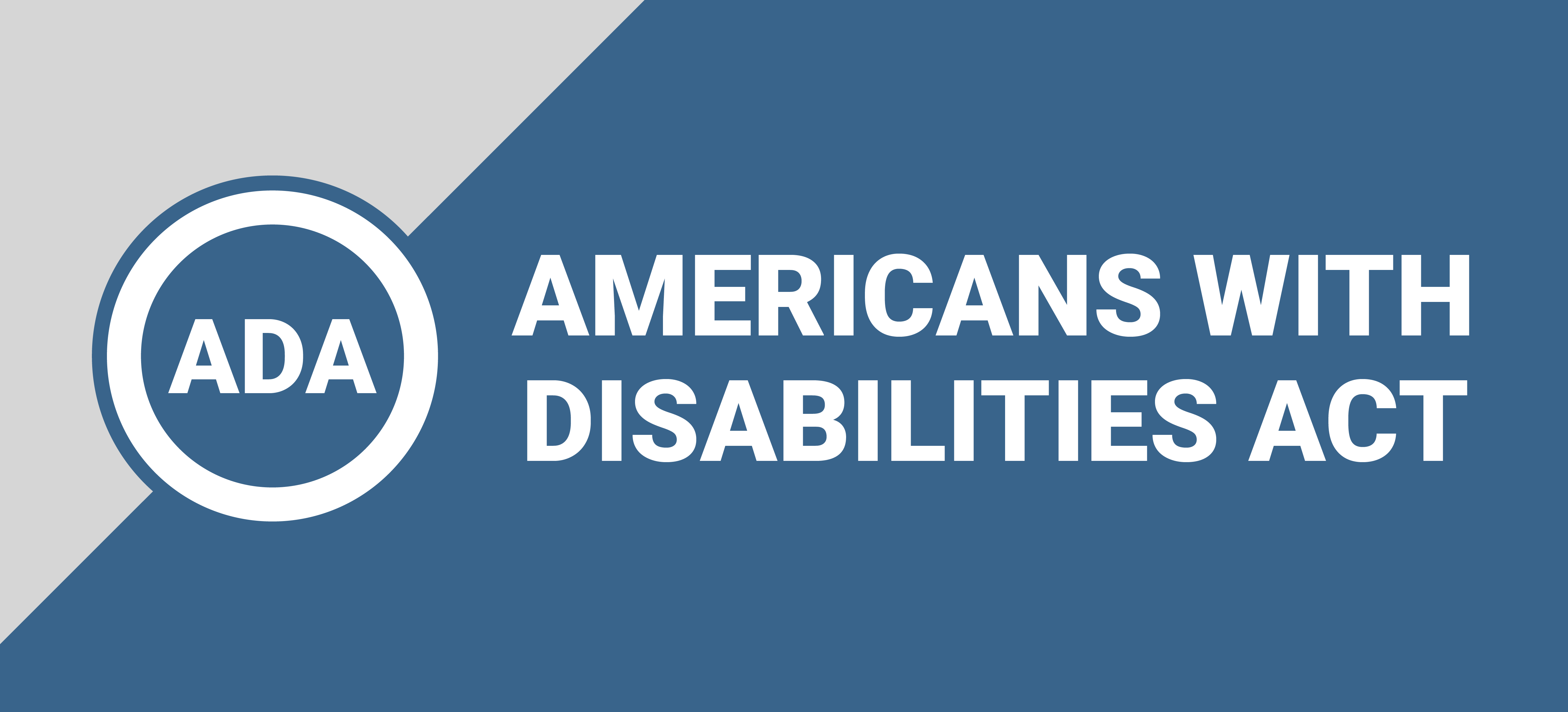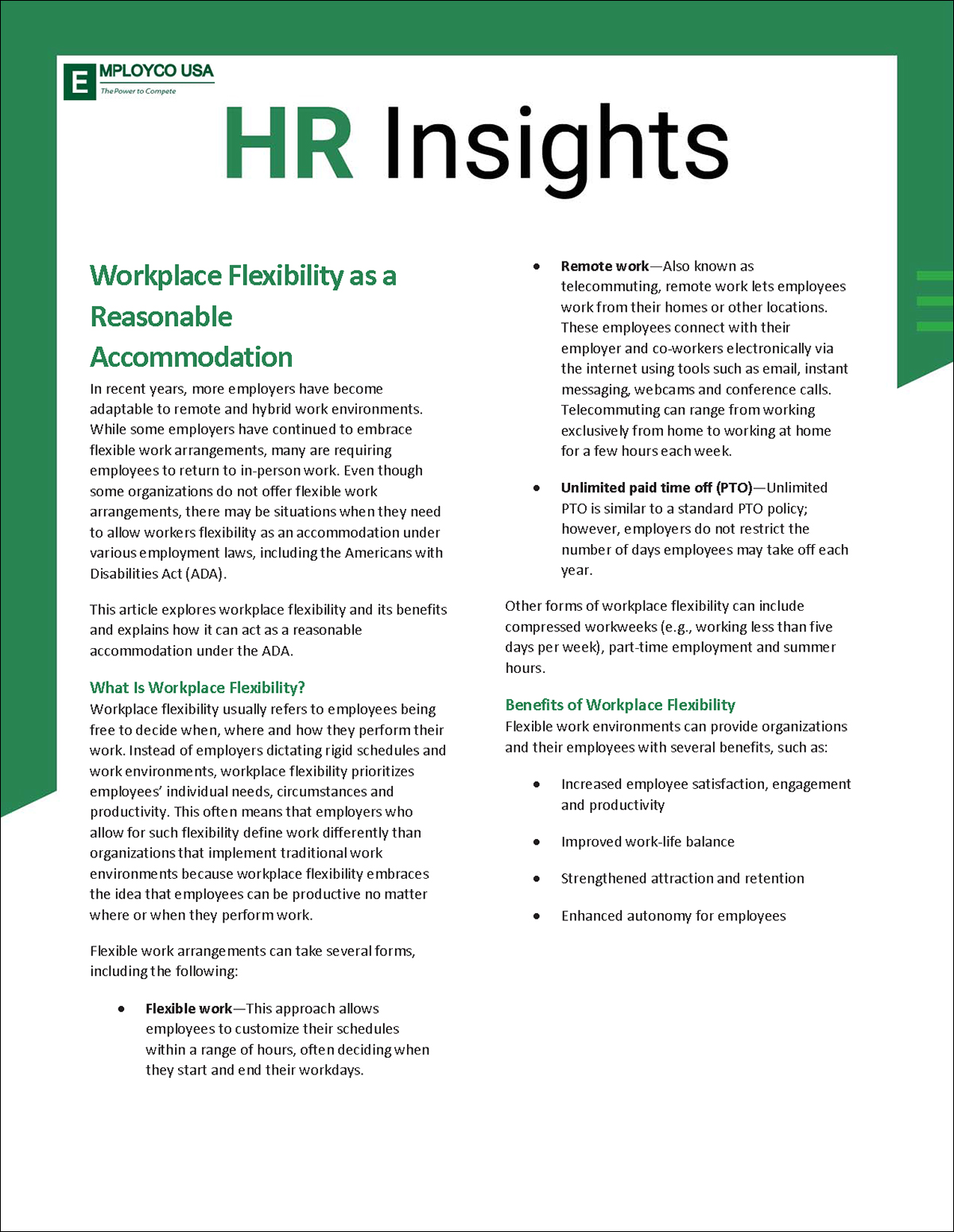
In recent years, more employers have become adaptable to remote and hybrid work environments. While some employers have continued to embrace flexible work arrangements, many are requiring employees to return to in-person work. Even though some organizations do not offer flexible work arrangements, there may be situations when they need to allow workers flexibility as an accommodation under various employment laws, including the Americans with Disabilities Act (ADA).
Under the ADA, flexible work arrangements, including working from home, can be a reasonable accommodation for employees with disabilities, according to guidance from the U.S. Equal Employment Opportunity Commission. Workplace flexibility can accommodate workers by reducing and removing distractions in their work areas. It can also accommodate employees’ scheduling needs, such as frequent breaks or leave for medical visits. In some situations, employers may need to increase or decrease an employee’s access to natural light, permit them to listen to music to block out workplace distractions, or erect soundproofing or visual barriers.
The following HR Insights article explores workplace flexibility and explains how it can act as a reasonable accommodation under the ADA: HR Insights – Workplace Flexibility as a Reasonable Accommodation
